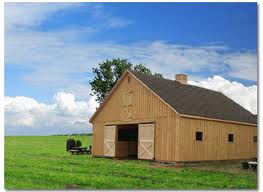 (This article first ran in the Richmond Times Dispatch on November 2, 2012).
(This article first ran in the Richmond Times Dispatch on November 2, 2012).
I recently stopped at a coffee shop in a rural county in Virginia.
I knew the county was benefiting from the expansion of a firm that created a couple hundred high-paying jobs.
I asked a customer whether she was happy to see the growth. “Not really,” she responded, “I’d rather see my kids grow up in the same rural environment that I enjoyed.”
I’ve heard the same sentiment in other rural areas that I’ve visited around the state – not everyone wants to see farmland turned into streets and developments.
According to a 2007 study by the U.S. Department of Agriculture, small family farms, those generating less than $250,000 in revenue, are more likely than larger farms to have a loss.
From that perspective, it’s easy to see why so many farmers end up selling their land for other uses.
The growth of agritourism may provide the increased revenue that some family farms need to stay in business.
The USDA, which defines agritourism and recreational services as farm or winery tours, hay rides, hunting or fishing, said this group showed strong growth in Virginia.
Income from agritourism and farm-related recreational activities in Virginia increased to $12.9 million in 2007 from $2.7 million in 2002 – an average 37 percent growth per year, according to the Farm Census that the U.S. Department of Agriculture performs every five years.
By comparison, overall farm income in the state grew only 7 percent a year during that period.
The emergence of the locavore movement – those people interested in eating locally produced food – and perhaps the ability to find local, in-season food, should provide a boost to farms that participate.
People who prefer to buy products that are grown locally can download free apps by searching “locavore” or go to Virginia’s website at http://www.vdacs.virginia.gov/vagrown/index.shtml to identify agritourism, famers markets and specialty products from around the state.
As we become healthier consumers, we ought to think about helping small farmers by buying products from them and touring farms while they are viable rather than visiting them in reenactment events.

Email this author
- The Most Progressive Budget in Virginia’s History - December 21, 2019
- When is a Clean Water Act Permit Needed? - December 21, 2019
- Should U.S. Consider Modern Monetary Theory to Improve Economy? - December 21, 2019
